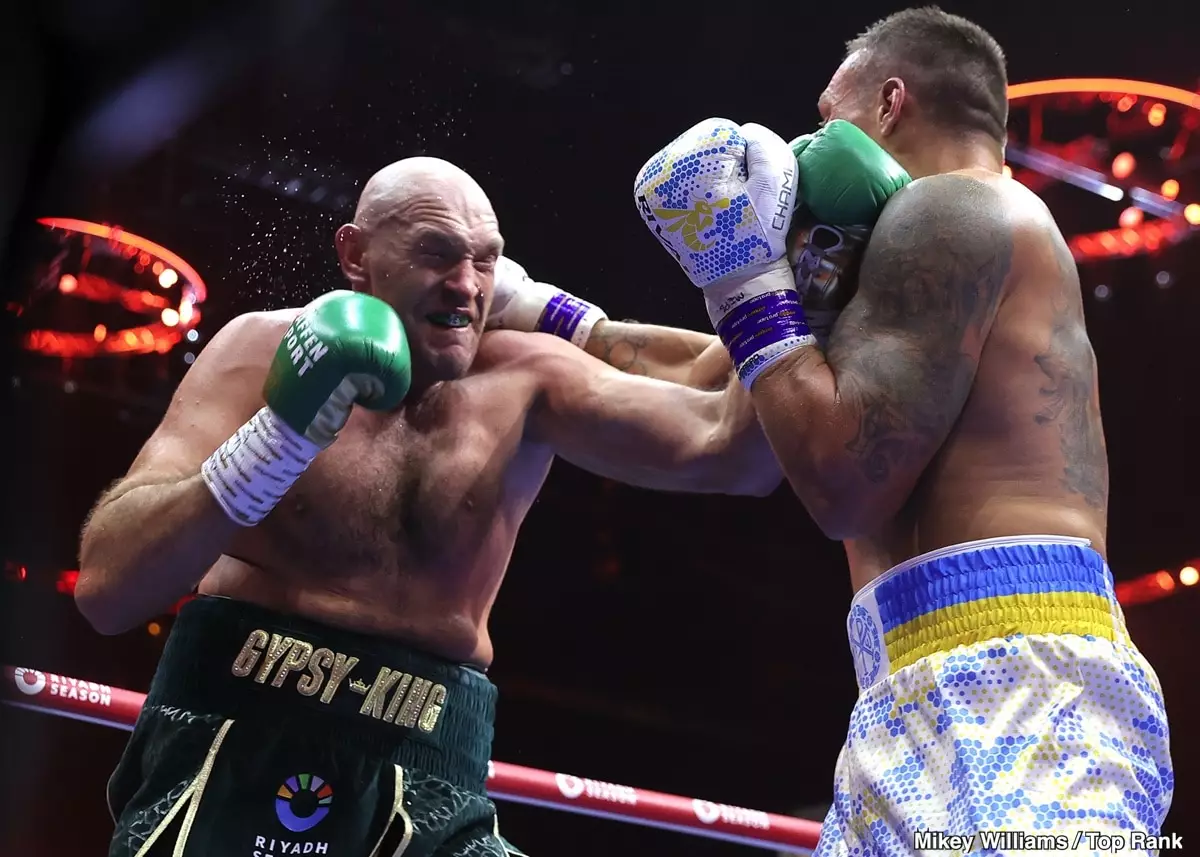Tyson Fury’s upcoming rematch with Oleksandr Usyk on December 21st shines a spotlight not only on the fight itself but also on the boxer’s rather striking perspective regarding finances. As Fury approaches the twilight of his professional career, his remarks surrounding the need to accumulate significant wealth reveal a mixture of ambition and apprehension. With a professional record of 34 wins, 1 loss, and 1 draw, and having amassed considerable fame and wealth, Fury’s recent claims of prioritizing monetary gain over legacy indicate deeper psychological maneuvers at play. One can’t help but ponder whether this focus on financial security serves as both motivation and a psychological shield against potential defeat in the ring.
In the face of a fight where he is pegged as the underdog, Fury’s emphasis on currency could be interpreted as a clever tactic to manage the expectations surrounding what many anticipate will be an uphill battle. By openly discussing financial incentives, he may inadvertently be mitigating the emotional fallout of a potential loss—an outcome that could impact his standing in boxing history. This notion arises feelings akin to self-preservation; if losing the rematch to Usyk—a champion with an undefeated record of 22 wins—happens, Fury’s preemptive focus on wealth could provide a buffer against disillusionment.
Fury’s declaration, “I do it for the dough,” raises profound questions about the sport’s evolution and its relationship with money. Is boxing now predominantly a business venture? If so, are fighters like Fury, consciously or unconsciously, prioritizing financial gain to cope with the sport’s inherent uncertainties? This shift in perspective—where financial ambition may supersede the traditional goals of glory and championship— invites scrutiny of the sport’s foundational values.
As fighters in the heavyweight division, particularly those such as Fury and Usyk, navigate the competitive landscape, they are also aware of the high stakes involved. Moreover, the boxing world often draws lines between athletic achievement and commercial success. This dynamic heavily influences fighters’ narratives and career decisions, shaping their legacies in ways they may not fully anticipate. Fury’s approach stands as a reflection of contemporary athletes who navigate a more commercialized terrain, yet it begs the question: at what cost does this pursuit of financial security come?
With a stated bank account of $200 million, Fury’s audacious claim appears to be a conscious effort to reframe narratives around his career. However, this raises the specter of his legacy—will future generations remember Tyson Fury as a champion or merely as a fighter who capitalized on the sport’s financial opportunities? As he prepares for this pivotal rematch, the intersection of ambition and vulnerability underscores a broader commentary on success in the modern boxing milieu, one where monetary gain often clashes with ideals of personal and professional achievement.
In essence, while Tyson Fury may assert his motivations are financially driven, the implications extend beyond mere dollars and cents, delving deep into the psyche of a competitor facing an uncertain future in a historically unpredictable sport.

